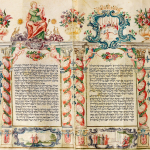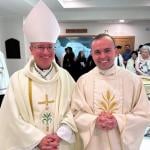Krakow, Poland, Jul 30, 2016 / 12:30 pm (CNA/EWTN News).- Pope Francis challenged massive crowds of young people at World Youth Day's final vigil to step away from the “sofa” of comfort and convenience, and respond to Christ's call to transform a suffering world. “Today Jesus, who is the way, the truth and the life, is calling you to leave your mark on history,” the Pope told the estimated 1.6 million people attending Saturday's vigil at the “Campus Misericordiae” – or “Field of Mercy.” In his address, the pontiff warned against opting “for ease and convenience, for confusing happiness with consumption,” because then “we end up paying a high price indeed: we lose our freedom.” “Jesus,” however, “is the Lord of risk, of the eternal 'more',” he said. “Following Jesus demands a good dose of courage, a readiness to trade in the sofa for a pair of walking shoes and to set out on new and uncharted paths.” Saturday's WYD vigil marks the end of Pope Francis' second to last day of his July 27-31 trip to Poland for the international youth event. The address was delivered after hearing the testimonies of three young people, including a young woman named Rand who described the daily horrors which the people in her home country of Syria experience. The gathering of so many young people from countries torn by conflict, war, and other atrocities makes it so that the sufferings experienced by young people in these regions “are no longer anonymous, something we read about in the papers,” the Pope said. “They have a name, they have a face, they have a story, they are close at hand,” he said referring to the suffering which young people like Rand have experienced, coming from war-torn Syria. The extent of these situations cannot be appreciated by viewing them through a cell phone screen or computer, he said. He asked for prayers for all those affected by war in Syria and other parts of the world in order that, “once and for all, may we realize that nothing justifies shedding the blood of a brother or sister; that nothing is more precious than the person next to us.” The Pope also acknowledged the testimonies of struggle and inner conflict delivered by the two other young people, Natalia – a former fashion magazine journalist – and Miguel – a former drug addict. “Both of you are a living sign of what God’s mercy wants to accomplish in us,” he said. Pope Francis stressed that now is not the time to denounce those fighting or to tear people down. “We have no desire to conquer hatred with more hatred, violence with more violence, terror with more terror,” he said. Rather, the name which should be given to the response to war is “fraternity,” “brotherhood,” “communion,” and “family.” “We celebrate the fact that coming from different cultures, we have come together to pray,” he said. “Let our best word, our best argument, be our unity in prayer.” “Let us also place before the Lord your own “battles”, the interior struggles that each of your carries in his or her heart.” At this point, the Pope invited everyone to join hands for a moment of silent prayer, which he said afterwords reminded him of the scene of the Apostles on the day of Pentecost. “Picturing them can help us come to appreciate all that God dreams of accomplishing in our lives, in us and with us,” he said. On that day, the disciples huddled behind locked doors, paralyzed by the fear of persecution, the Pope recounted. “Then, in that situation, something spectacular, something grandiose, occurred,” he said. “The Holy Spirit and tongues as of fire came to rest upon each of them, propelling them towards an undreamt-of adventure.” Like the disciples, the young people who gave their testimonies know “the fear and anguish born of knowing that leaving home might mean never again seeing their loved ones, the fear of not feeling appreciated or loved, the fear of having no choices.” “Thinking that in this world, in our cities and our communities, there is no longer any room to grow, to dream, to create, to gaze at new horizons – in a word to live – is one of the worst things that can happen to us in life,” he said. “When we are paralyzed, we miss the magic of encountering others, making friends, sharing dreams, walking at the side of others.” Pope Francis warned against a more dangerous kind of paralysis, which he described as “sofa-happiness” – in other words, the paralysis of confusing happiness with the sense of comfort, freeing us up to escape into the world of videogames and the computer, all the while keeping us at home with the illusion of safety. “That is probably the most harmful and insidious form of paralysis, since little by little, without even realizing it, we start to nod off, to grow drowsy and dull while others – perhaps more alert than we are, but not necessarily better – decide our future for us,” he said. “For many people, that is more convenient than having young people who are alert and searching, trying to respond to God’s dream and to all the restlessness present in the human heart.” The Pope challenged young people not to “vegetate” in a comfortable life, but reminded them of their call “to leave a mark.” “But when we opt for ease and convenience, for confusing happiness with consumption, then we end up paying a high price indeed: we lose our freedom,” he said. “This is itself a great form of paralysis, whenever we start thinking that happiness is the same as comfort and convenience, that being happy means going through life asleep or on tranquillizers, that the only way to be happy is to live in a haze.” In contrast to this life of “sofa-happy” paralysis, Pope Francis said, “Jesus is the Lord of risk, of the eternal 'more'.” “Jesus is not the Lord of comfort, security and ease. Following Jesus demands a good dose of courage, a readiness to trade in the sofa for a pair of walking shoes and to set out on new and uncharted paths.” He told young people to take the path of the “craziness” of our God, by which he means caring for those in need, be they neighbors, prisoners, friends, refugees, or migrants. Although some might say such a life is for only a “chosen few,” the Pope cited the testimony of Miguel who said that one you are entrusted with responsibility, you begin “to understand that God was asking something of you.” “That is the secret, dear friends, and all of us are called to share in it. God expects something from you. God wants something from you. God hopes in you. God comes to break down all our fences.” “God comes to break open everything that keeps you closed in. He is encouraging you to dream. He wants to make you see that, with you, the world can be different.” “For the fact is, unless you offer the best of yourselves, the world will never be different.” It is not a time for young “couch potatoes,” the Pope said, but for protagonists of history. “History today calls us to defend our dignity and not to let others decide our future,” he said. For those concerned about their own limitations and sins, Pope Francis assured young people that the Lord is not concerned with what he have been or done, but “about everything we have to give, all the love we are capable of spreading.” “Jesus is inviting you, calling you, to leave your mark on life, to leave a mark on history, your own and that of many others as well,” he said. The Pope spoke of young people's role in teaching adults “how to live in diversity, in dialogue, to experience multiculturalism not as a threat but an opportunity.” “Have the courage to teach us that it is easier to build bridges than walls!” Concluding his address to the young people, the Pope said: “Today Jesus, who is the way, the truth and the life, is calling you to leave your mark on history.” “He, who is truth, is asking you to abandon the paths of rejection, division and emptiness,” he said. “Are you up to this? What answer will you give, with your hands and with your feet, to the Lord, who is the way, the truth and the life?”#PopeFrancis gives the blessing after adoration at #WYD2016. "For the sake of his sorrowful passion..." #Krakow2016 pic.twitter.com/oJCnyRkN3Q — Catholic News Agency (@cnalive) July 30, 2016 Read more
















